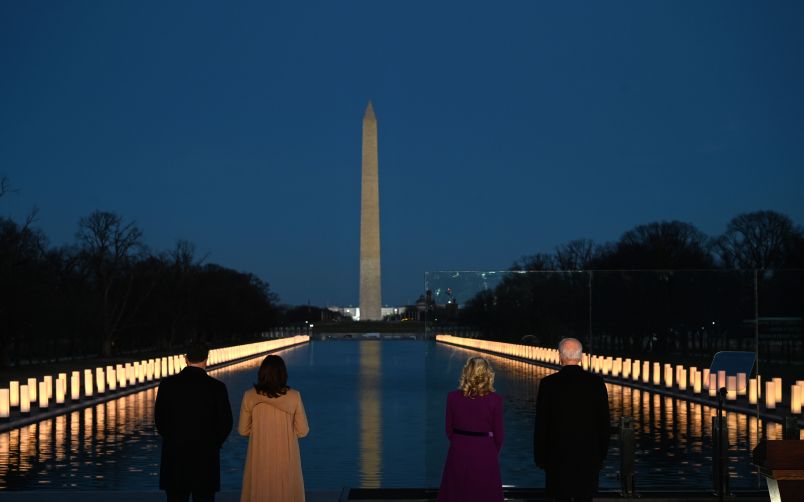If you didn’t see the COVID memorial service this evening – part of Joe Biden’s larger inauguration program – you really should. It is remarkable, simply remarkable that we are almost a year into this horrible epidemic and this is the first national memorial or commemorative service honoring, remembering the dead.
It is a remarkable and a devastating commentary. I did not quite grasp this absence until I saw it. We’ve fought so much over this epic calamity. We’ve seen so much deflection, blame-shifting and lies. Biden’s comments, remarkably brief, were a reminder that much of what we need is in silence, remembering and memorializing this catastrophic loss. We are now at more than 400,000 Americans dead, roughly the total number of fatalities over almost four years of World War II.
The brief program included two songs: Amazing Grace and Hallelujah.
This quiet, devastating and hopeful memorial reminded me of the remarkable and wholly improbable journey of this song, Hallelujah, into something like a canonical song of memorial or pathos in American culture. That this should be so is actually quite odd, not least because it is not at all clear what the song, in its totality, is even about. And a number of things the song is quite clearly about … well, they are not what you’d expect in a song now treated as appropriate, uplifting and fitting for all occasions and audiences.
Mainstream or memorial versions commonly expurgate the song’s erotic imagery. But it can’t all be ironed out. This energy, rumbling rough under the simplified lyrics, gives a power and ballast even to the more sanitized versions. In any case the mixing and matching of lyrics is possible because Leonard Cohen wrote numerous different lyrics for the song. You can mix and match them and create your own version.

 Members-Only Article
Members-Only Article
